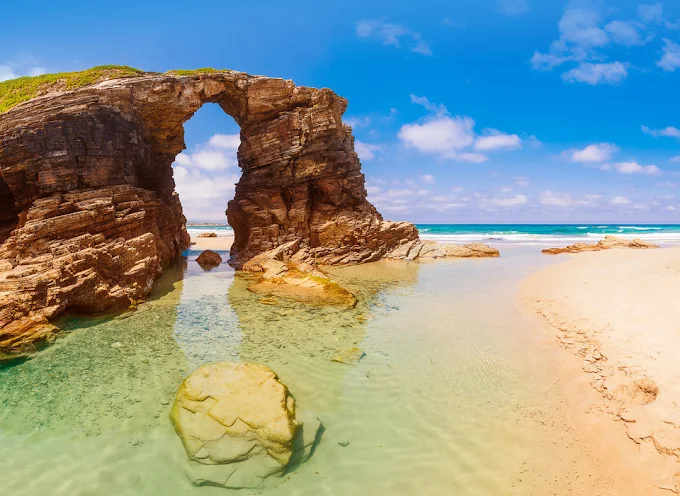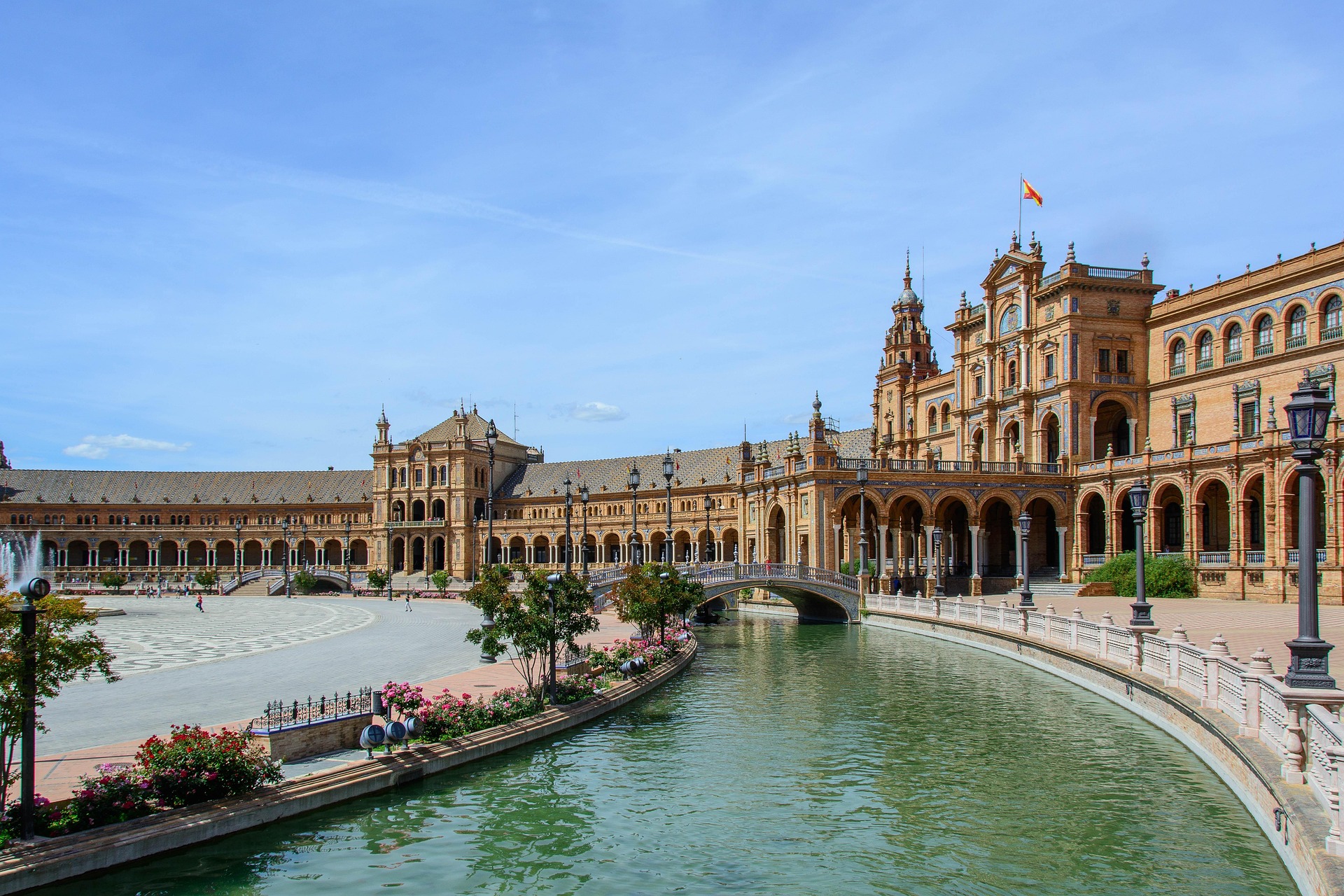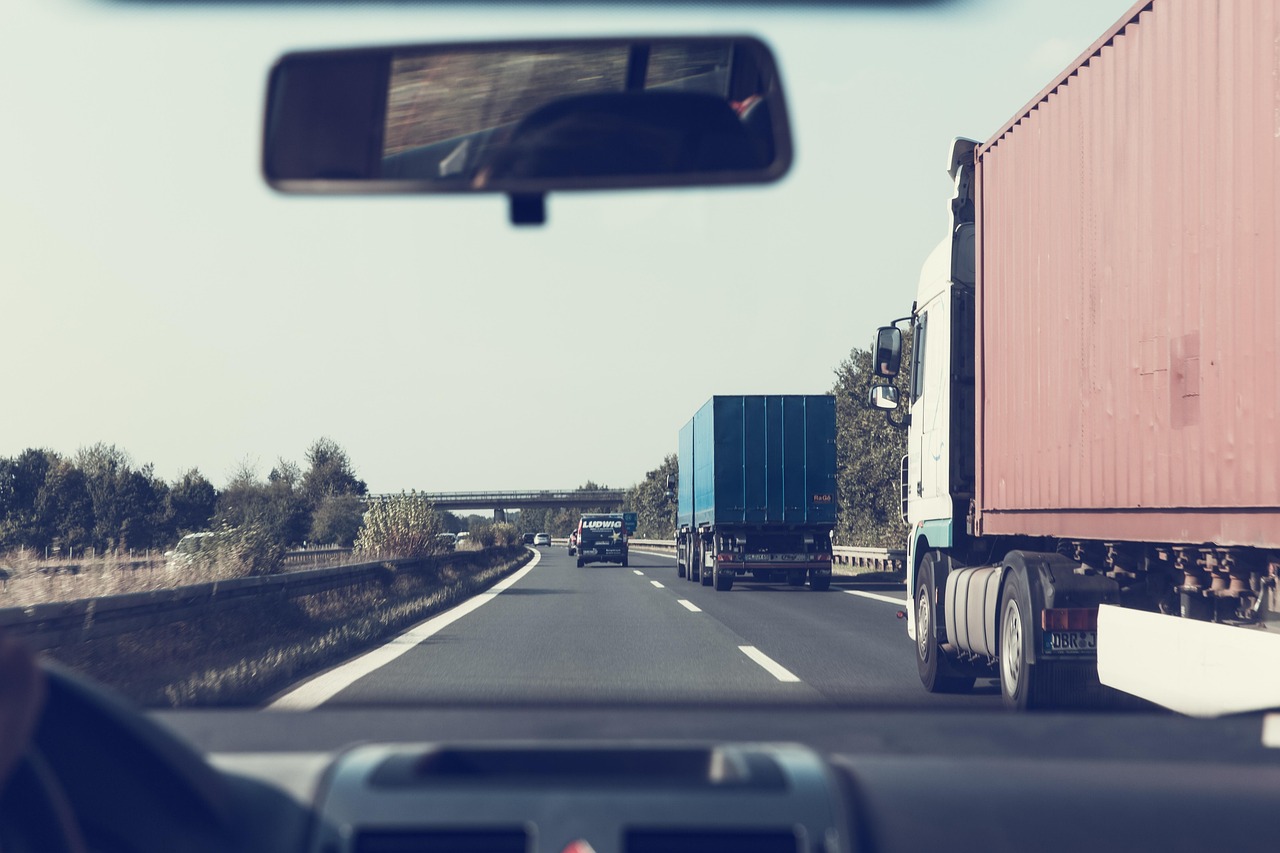No lorries on the road this morning. A couple of farm vans, one guy on a battered scooter with a bag of bread hanging from the handlebars. Smell of something burnt drifting in from a field. Mary wasn’t bracing herself against the dashboard, which made me glance over twice just to check.
Playa de las Catedrales was the point of the drive. I’d seen the photos — big stone arches, ridges and towers carved out by the sea, gaps in the cliff you can walk through if the tide behaves. High tide, you get nothing but water slapping rock. Low tide, it’s like the cliffs peel back a curtain.
We caught it right. Sand cool in the shadows, gritty where it had dried out. Sea smell sharp enough to taste. A boy further along was waving something — a crab, I think — at his sister, who didn’t look impressed. I went out too far trying for a photo and a slow wave caught me up to the knees. Shoes heavy, socks worse. Mary took a picture before I’d even said anything.
Didn’t head straight off. There’s a path along the top where you can look down at the whole thing. People below like ants between the arches, stopping for the same shots. A dog barked at the surf until it got bored.
Ribadeo for lunch. Harbour café, two tables inside, three out front. Pulpo a la gallega on a wooden plate, oil pooling under the paprika. Pretty sure the wine was Albariño. Nets coming in just behind us, gulls arguing, an accordion player cycling through the same three songs. Mary leaned back in her chair and said this was what retirement should be, which she’s said before, but here it felt like she meant it.
We walked it off. Old houses with balconies sagging under their own weight, small cottages in yellows and blues that made more sense in the sun. Mary went into a ceramics shop. I stayed outside. Watched a man folding a net into a crate like it was something fragile.
Evening drive along the coast to Viveiro. Hairpins, cliffs dropping straight to the water. Light coming in low and gold, catching on every bit of glass and water it could find. Mary told me to keep my eyes on the road, twice.
Viveiro didn’t try too hard. Stone streets, sea air, a waterfront that looked the same whether you were a local or just passing through. We left the van and found a guesthouse — balcony just enough for two chairs and nowhere to put your feet.
Wandered the old quarter without thinking about it much. Passed under the Porta de Carlos V. I said it looked easier to defend than invade. Mary didn’t look up from whatever she was reading when she said I’d be hopeless at both.
Dinner in a sidrería. No menu. Cider poured from above the shoulder into little glasses, hitting with that hiss. I tried it. Most of mine hit the floor. The pulpo was softer than the one at lunch, oil and paprika soaking into the wood.
Somewhere between rounds, someone decided we should join a cider-drinking contest. I lasted three pours. Mary outlasted everyone at the table. On the way back, quiet streets, a guitar coming from behind a half-open door, frying oil in the air from somewhere we couldn’t see.
Mary said she could live here. She says that in every second town. Left the window open a crack. The sea did the rest.



